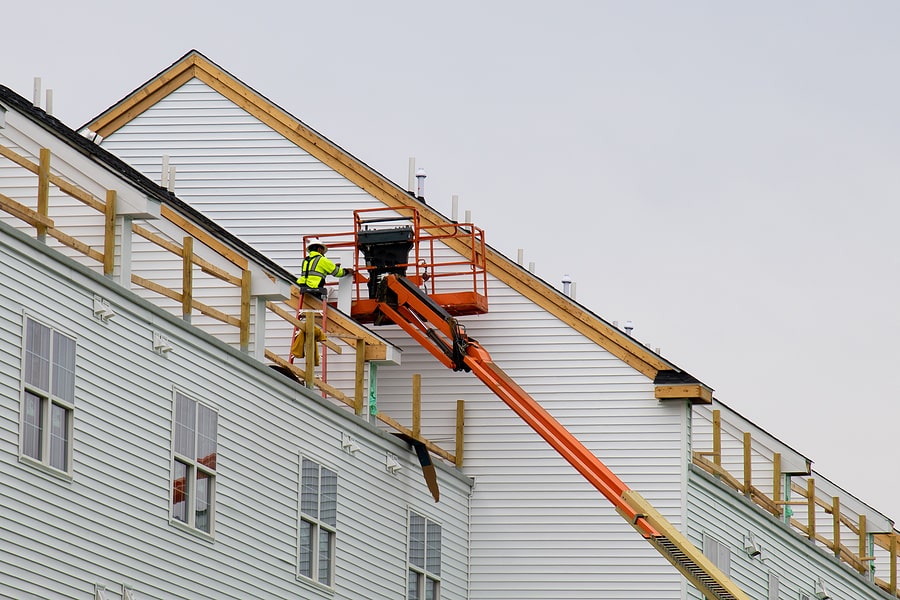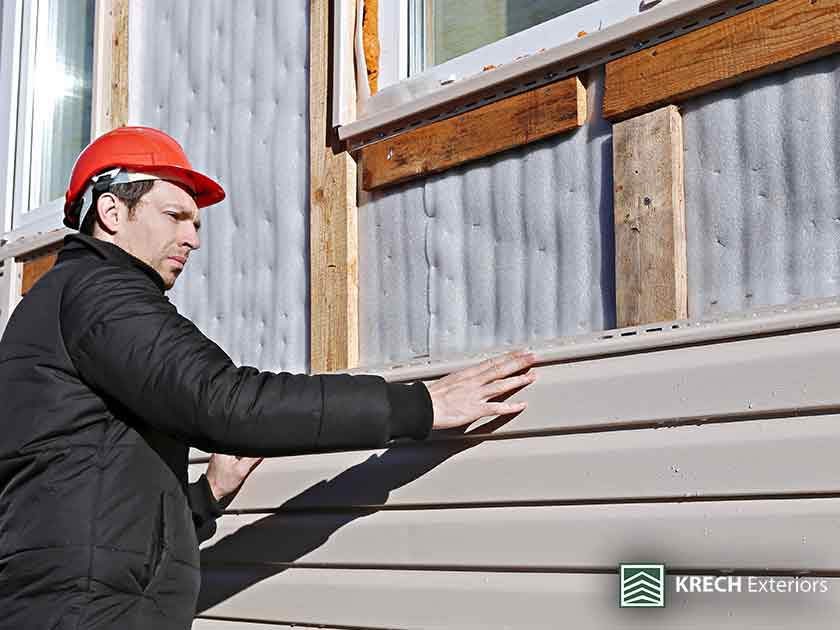Morris Siding Contractor with Exceptional Service and Top-Notch Materials
Morris Siding Contractor with Exceptional Service and Top-Notch Materials
Blog Article
The Vital Guide to the Numerous Kinds Of Home Siding and Their Special Advantages
In the world of home renovation, picking the right house siding is an essential decision that affects both aesthetic allure and practical efficiency. With so many options to consider, which house siding material truly stands out for your particular job?
Wood Exterior Siding
Wood house siding, a popular option for property exteriors, uses an ageless visual that incorporates all-natural appeal with architectural integrity. This exterior siding material is offered in different styles, consisting of clapboard, shingles, and board-and-batten, enabling house owners to tailor their façade to match their style preferences. Wood house siding is normally crafted from long lasting types such as cedar, redwood, or want, which are known for their durability and ability to withstand environmental stressors.
One of the main advantages of wood exterior siding is its outstanding insulation buildings, which can contribute to power efficiency and lower heating costs. In addition, wood exterior siding is naturally degradable, making it an eco-friendly alternative when sourced sustainably. Normal upkeep, consisting of painting or staining, can prolong its lifespan and boost its look, allowing house owners to preserve the all-natural beauty of the wood.
Nevertheless, prospective drawbacks consist of susceptibility to pests, rot, and weather condition damage, requiring sufficient treatment and maintenance - morris siding contractor. Regardless of these issues, when effectively taken care of, timber home siding can supply a gorgeous and resilient service that improves the character of a home while using a cozy, welcoming ambience

Vinyl Siding
Plastic house siding has arised as a leading option for home owners seeking a low-maintenance outside option that combines longevity and affordability. This flexible product is crafted from polyvinyl chloride (PVC), making it resistant to various weather, including wetness and UV rays. Therefore, plastic siding does not warp, rot, or fade, making certain long-lasting aesthetic charm.
One of the main advantages of vinyl home siding is its extensive series of designs and colors, allowing homeowners to achieve the desired seek their building without the demand for regular repainting. In addition, plastic home siding is simple to install, which can dramatically minimize labor expenses during building or improvement jobs.
Plastic siding additionally adds to energy efficiency. Many choices feature insulation support, which improves thermal performance, aiding to preserve comfortable interior temperatures and possibly decreasing power bills. Its smooth surface facilitates simple cleansing, calling for only periodic washing with a garden hose to remove dirt and particles.
Fiber Cement House Siding
Fiber cement siding has obtained grip among home owners and contractors alike as a result of its exceptional combination of sturdiness and aesthetic convenience. Composed of a combination of cement, cellulose, and sand fibers, this siding choice is crafted to stand up to severe climate condition, consisting of high winds, heavy rainfall, and temperature level variations, making it a long-lasting selection for residential outsides.

One of the primary benefits of fiber concrete home siding is its resistance to pests, such as termites, and its non-combustible nature, offering improved fire safety and security. morris siding contractor. Additionally, it is available in a vast selection of shades, styles, and structures, enabling home owners to accomplish their preferred aesthetic without compromising efficiency
An additional benefit is its reduced maintenance requirements; fiber cement exterior siding commonly calls for paint or staining every 5-10 years, which image source is much less constant than other materials. In addition, its long life adds to a lower general cost of ownership, as it lowers the demand for frequent repair services or substitutes.
Ultimately, fiber concrete siding represents a superb financial investment for those looking for a durable, attractive, and flexible exterior choice, incorporating both form and function to boost the home's aesthetic allure.
Metal House Siding
The appeal of steel siding exists in its robust longevity and modern-day visual appeal, making it a preferred option for contemporary style. Offered in products such as aluminum and steel, metal home siding supplies a series of shades and coatings, allowing property owners to accomplish a customized look that complements their layout vision.

Energy efficiency is an additional substantial benefit, as many metal house siding products are designed with insulation alternatives that aid control interior temperature levels. This can lead to lowered power prices gradually. In addition, steel exterior siding is often recyclable, making it an eco-friendly choice for sustainability-minded house owners.
The installment process for steel home siding can be relatively simple, resulting in a quicker turnaround time for building projects. Generally, metal siding incorporates performance and style, making it a practical option for those looking for a aesthetically attractive and long-lasting exterior surface.
Block and Rock House Siding
Block and rock house siding stands apart as a classic option that improves the visual beauty of any type of home. Known for their toughness and low upkeep, these materials offer an extraordinary roi while boosting the building's curb appeal. Available in various colors, appearances, and patterns, brick and stone can be tailored to match diverse building designs, from conventional to modern-day.
Among the main advantages this website of brick and rock siding is their energy effectiveness. Both materials possess all-natural shielding buildings that assist manage interior temperature levels, possibly lowering heating and cooling prices. Additionally, they offer remarkable fire resistance compared to other siding options, contributing to improved safety and security.
Another advantage is their long life. Brick and stone can last for decades, usually requiring minimal upkeep past occasional cleansing. Unlike timber exterior siding, they are impervious to insects and rot, making certain a resilient exterior that holds up against the components.
Conclusion
In recap, the option of house siding dramatically impacts a home's aesthetic allure, energy effectiveness, and maintenance needs. Each kind of exterior siding-- whether timber, vinyl, fiber metal, brick, or cement and rock-- offers special benefits tailored to numerous home owner choices and environmental problems. Understanding these options enables informed decisions that improve both the toughness and visual beauty of property exteriors. Eventually, choosing the appropriate siding is important for accomplishing a balance in between capability Our site and layout in household design.
One of the primary benefits of timber exterior siding is its excellent insulation buildings, which can add to energy performance and lower home heating expenses. In addition, timber exterior siding is naturally degradable, making it an ecologically friendly option when sourced sustainably.One of the main benefits of metal home siding is its resistance to different ecological elements.Power efficiency is another considerable advantage, as several metal house siding items are designed with insulation options that help regulate interior temperatures. Each kind of house siding-- whether timber, plastic, fiber metal, brick, or cement and rock-- uses unique benefits tailored to various homeowner preferences and environmental conditions.
Report this page